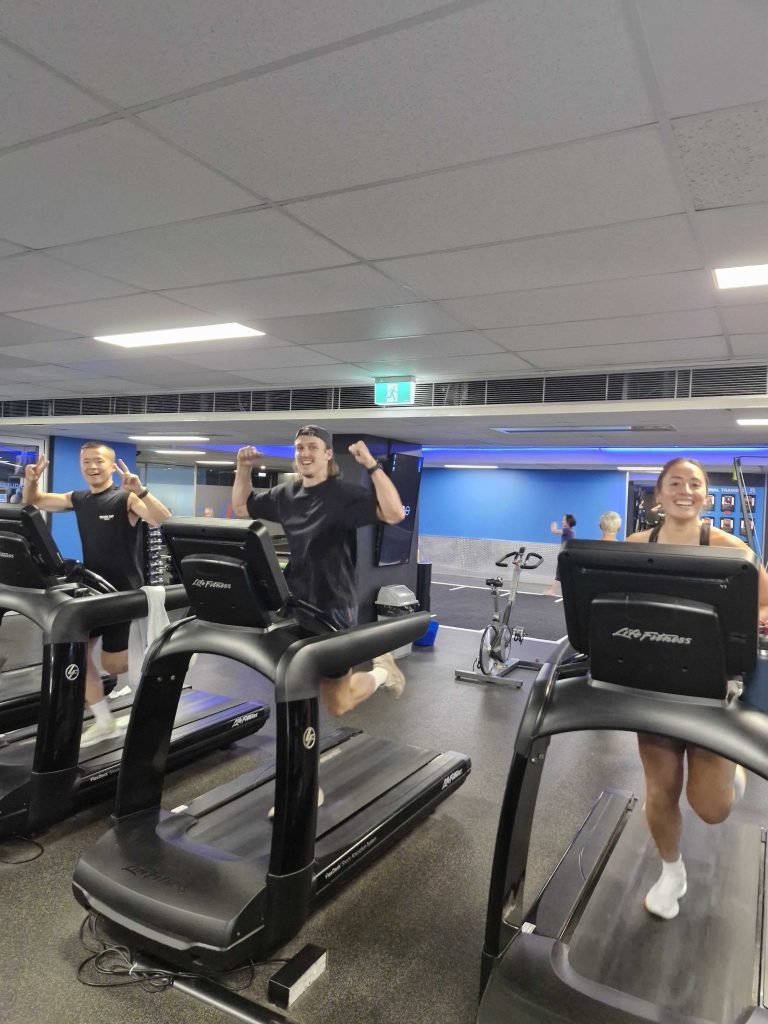Running vs Walking: Which Is Better for Longevity?
(Hint: Both!)

If your goal is to live longer, move better, and feel healthier as you age, you may be wondering:
Should I be walking or running?
The truth is, both walking and running offer science-backed benefits for longevity—and the best approach depends on your body, goals, and lifestyle. What matters most is consistency, not speed.
With City2Surf just around the corner, now’s the perfect time to set a goal and choose the approach that works best for you—whether that’s walking the course or running it.
The Science of Walking for Longevity
Walking is often underrated, but research shows it’s one of the most effective low-impact ways to reduce mortality risk. A 2021 meta-analysis in the British Journal of Sports Medicine found that even 4,000 steps a day significantly reduces the risk of dying from all causes, with benefits increasing up to about 10,000 steps per day.
Other studies show that:
- Regular walking lowers the risk of heart disease, stroke, type 2 diabetes, and certain cancers
- It improves mental health, cognitive function, and reduces the risk of dementia
- Walking pace matters: brisk walking (about 100+ steps per minute) is linked with even greater benefits

The Science of Running for Longevity
Running is higher impact but also higher intensity—which means more cardiovascular benefit in less time. A major study in the Journal of the American College of Cardiology found that just 5-10 minutes of running per day at slow speeds was associated with a 30% lower risk of all-cause mortality and 45% lower risk of cardiovascular death.
Running is linked to:
- Improved VO2 max (a key predictor of lifespan)
- Increased bone density, especially at the hips and spine
- Better metabolic health, including lower blood pressure and cholesterol
- Enhanced mental resilience and stress management
However, it also comes with a higher injury risk if done without proper support or preparation—especially for beginners or those with joint issues.
So Which Should You Choose?
If your goal is longevity, you don’t have to choose between walking and running. The best option is the one that:
✔️ You can do safely
✔️ You enjoy enough to stick with
✔️ Supports your long-term goals
Some of our clients walk the City2Surf. Others run it. Many do a combination—and every one of them benefits from better fitness, community, and purpose along the way.
Join the Longevity City2Surf Team
Whether you’re walking your first 14km or trying to beat last year’s run time, we’ll help you train smart and stay injury-free.
At Longevity Exercise Physiology, we offer:
- 1:1 tailored support from university-trained health professionals
- Gym, home, park or telehealth options for flexible training
- Individualised beginner-friendly progression plans to build safely over time
- Communication with your GP or specialist, if needed
- Direct contact with your Exercise Physiologist
We’ll help you build the strength, fitness, and confidence to take on City2Surf—and set a solid foundation for the decades ahead.
Step by step or stride by stride, your journey starts now.
Speak to your Exercise Physiologist today to join the Longevity City2Surf team.
Ready to take the first step toward increasing your fitness and lifespan? Call Longevity Exercise Physiology Ascot Vale, Burwood, Casey, Castle Hill, Coburg, Drummoyne, Edgecliff, Five Dock, Gladesville, Gungahlin, Kingsgrove, Liverpool, Macarthur Campbelltown, Macarthur Tindall, Marrickville, Neutral Bay, Penrith, Pymble, Pyrmont, Randwick, Rhodes, Rosebery, Springfield, Yamanto today on 1300 964 002 to book your personalised session or a 15-minute free phone consultation.
Written by Rhiannon Freemantle

